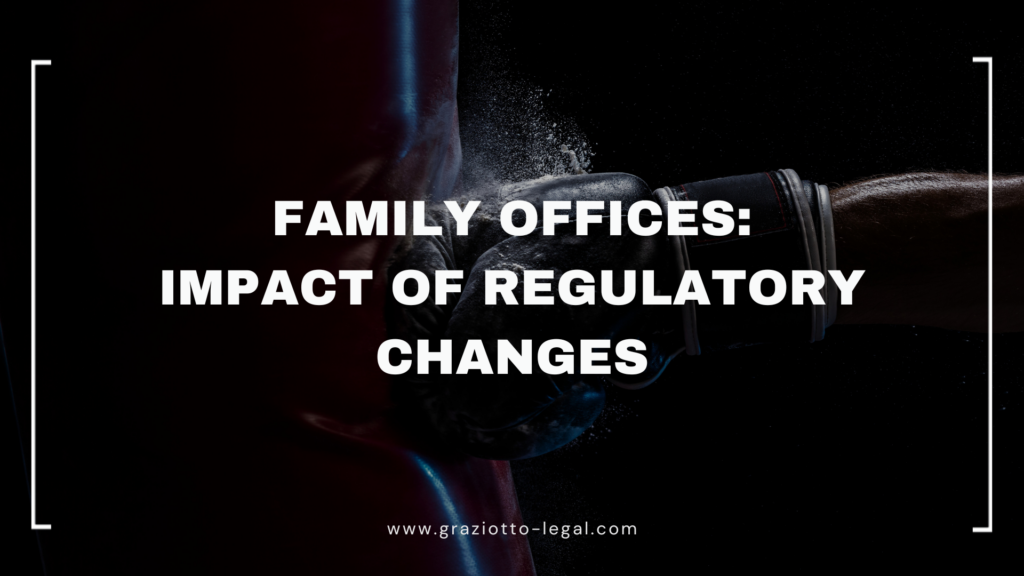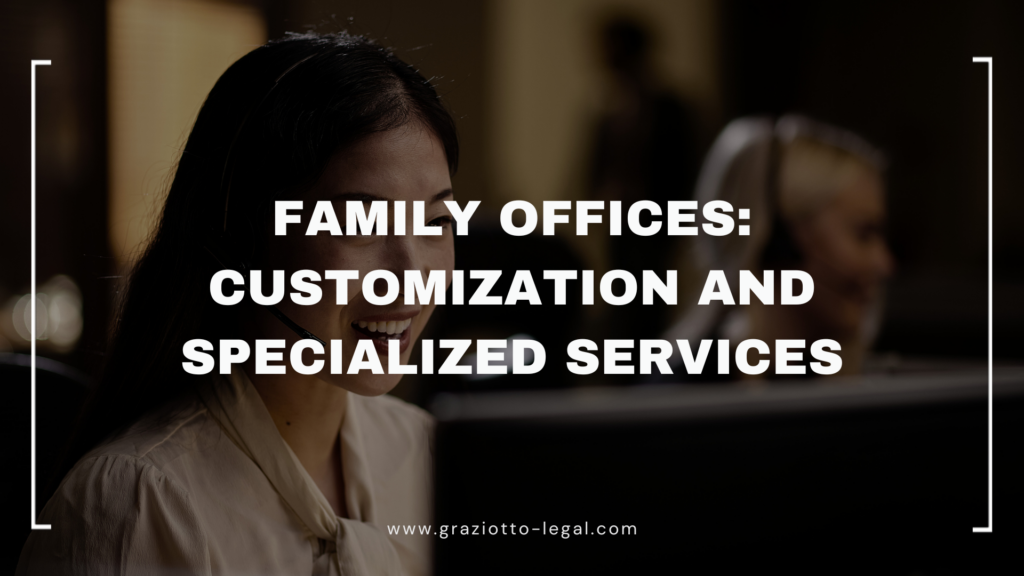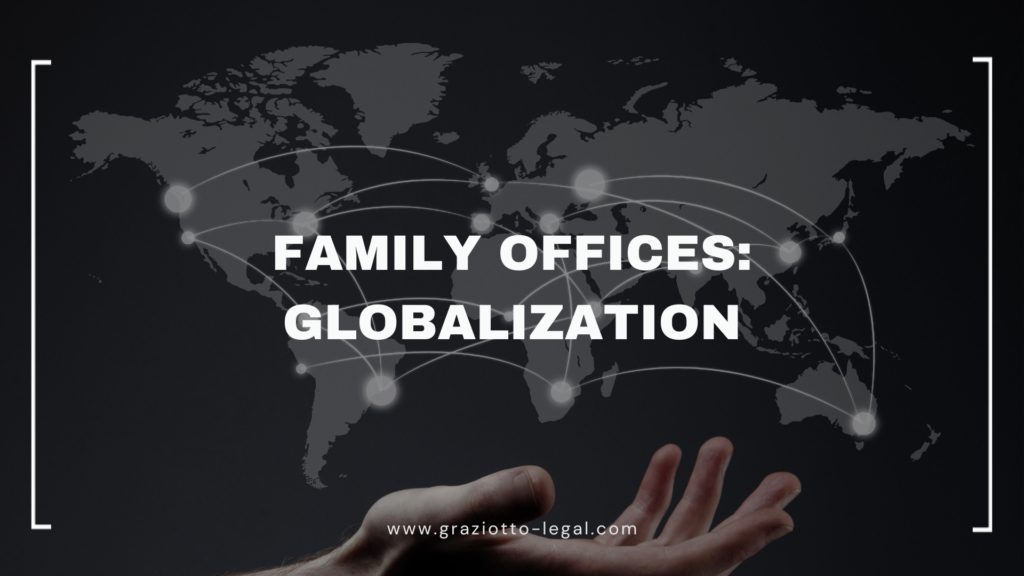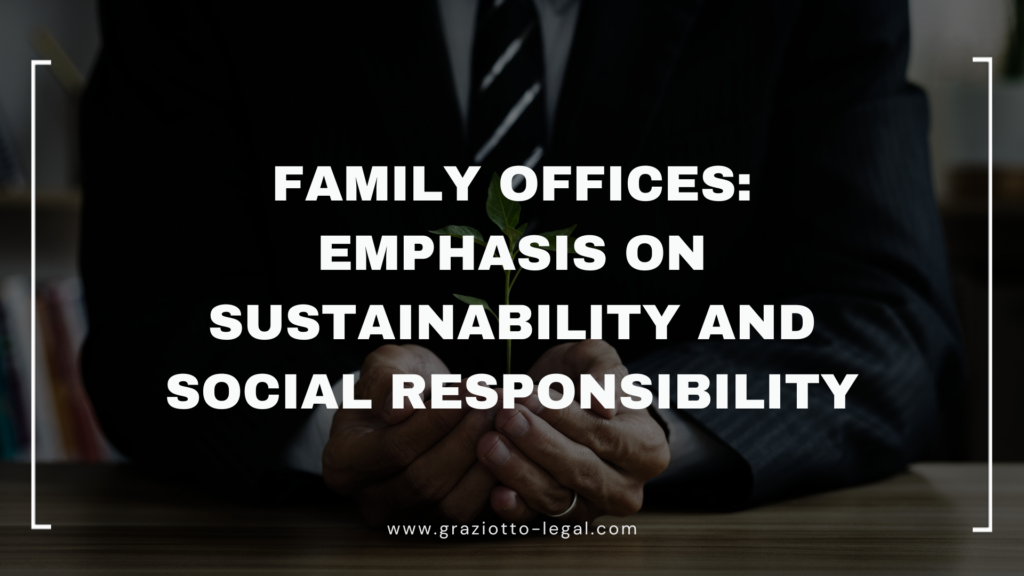1. The Landscape of Regulatory Changes:
– Historical Perspective: Regulations in the family office space have evolved over time, reflecting the broader socio-economic changes, emerging financial products, and shifting risk paradigms.
– Geographical Variations: Different jurisdictions have varying regulatory requirements, creating complexity for family offices operating across borders.
– Nature of Regulation: Regulatory changes can be broadly categorized into those affecting financial operations, privacy and information security, taxation, and anti-money laundering (AML) compliance.
2. Key Regulatory Changes Affecting Family Offices:
– Financial Regulations:
– Investment Regulations: Various jurisdictions have implemented changes affecting investment structures, portfolio management, risk management, and reporting.
– Banking Regulations: Changes in banking laws have implications for liquidity management, credit arrangements, and relationships with financial institutions.
– Privacy and Information Security:
– Data Protection Laws: Enhanced regulations around data privacy, such as the General Data Protection Regulation (GDPR) in the European Union, have created challenges in managing andsharing personal information.
– Cybersecurity Compliance: The increasing cyber threats have led to strengthened cybersecurity regulations requiring robust measures to protect sensitive information.
– Tax Regulations:
– Cross-Border Tax Compliance: Initiatives like the Common Reporting Standard (CRS) and the Foreign Account Tax Compliance Act (FATCA) have necessitated transparent reporting and compliance for international tax obligations.
– Changes in Estate and Gift Tax Laws: Variations in these laws can impact estate planning strategies and wealth transfer mechanisms.
– Anti-Money Laundering (AML) and Compliance Regulations:
– Enhanced AML Requirements: Family offices must now adhere to stricter AML policies, customer due diligence, and reporting obligations.
– Sanctions Compliance: Global sanctions regimes have required careful monitoring and compliance to avoid inadvertent violations.
3. Challenges and Opportunities Created by Regulatory Changes:
– Challenges:
– Complexity of Compliance: Adhering to diverse and ever-changing regulations requires significant expertise and resources.
– Potential Conflicts Between Jurisdictions: Managing compliance across different regulatory landscapes can lead to conflicts and inconsistencies.
– Increased Costs: Compliance with new regulations often entails increased operational and legal costs.
– Opportunities:
– Strategic Alignment with Regulations: Proactive compliance can be a strategic advantage, aligning the family office with best practices and risk management principles.
– Leveraging Technology: Implementing tech-driven solutions for compliance can enhance efficiency and effectiveness.
– Building Trust: Transparency and adherence to regulations can foster trust with stakeholders, including regulators, financial partners, and family members.
4. Adapting to Regulatory Changes: Strategies for Family Offices:
– Understanding the Regulatory Landscape: Continuous monitoring and understanding of the applicable regulations are essential for effective compliance.
– Engaging with Legal and Compliance Experts: Collaborating with specialists in legal and compliance ensures that the family office can navigate the complex regulatory environment.
– Implementing Technology Solutions: Utilizing technology to automate compliance processes, manage data, and ensure security can be a critical strategy.
– Training and Education: Providing ongoing training to staff members about regulatory requirements and ethical practices is vital for maintaining compliance.
– Strategic Planning: Aligning regulatory compliance with the overall strategy of the family office ensures a cohesive approach to managing regulatory impacts.
5. Future Outlook:
– Continued Evolution of Regulations: Regulations are likely to continue evolving, reflecting changes in financial markets, technologies, and global dynamics.
– Greater Emphasis on ESG Considerations: Environmental, Social, and Governance (ESG) criteria are becoming increasingly significant in regulations, likely to influence investment and operational strategies.
– Global Harmonization Efforts: There may be increased efforts towards harmonizing regulations across jurisdictions, aiming to reduce conflicts and enhance cooperation.
Regulatory changes have become a defining aspect of family office management. The complexities and variations in regulations have created both challenges and opportunities, demanding sophisticated strategies and continuous vigilance.
Family offices must be proactive, flexible, and collaborative in adapting to the regulatory landscape, utilizing technology and expert guidance to ensure compliance while aligning with their strategic goals.
These regulatory trends and their management will continue to shape the family office industry, reflecting broader societal and economic transformations.
For more in-depth information you can consult my latest book «The Global Manual for Family Offices», Volume 1, Chapter 4.1.4, Pg. 245.


























